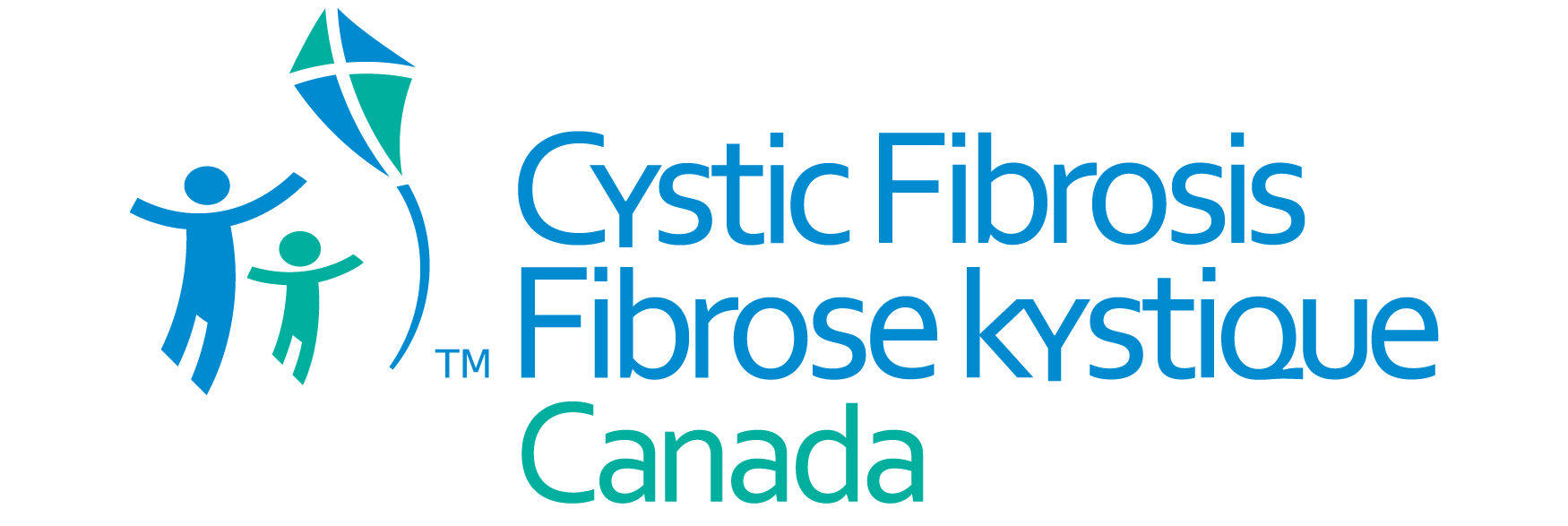The theratyping revolution: How Dr. Theo Moraes is transforming CF care
November 1, 2024Share this:

The theratyping revolution: How Dr. Theo Moraes is transforming CF care
Dr. Theo Moraes, a researcher at The Hospital for Sick Children, stands at the forefront of cystic fibrosis (CF) research. His groundbreaking contributions to the field, particularly his recent project that received the highest score from community reviewers in our grant competition, have earned him the prestigious 2024 Cathleen Morrison Research Impact Award. This recognition highlights the project's potential to significantly impact people living with CF. Dr. Moraes leads a state-of-the-art laboratory specializing in lung epithelial cells, where his research spans respiratory viruses, asthma, CF, and the effects of vaping. Dr. Moraes is also an integral member of the Program for Individualized CF Therapy (CFIT), a pioneering initiative partnered with Cystic Fibrosis Canada, dedicated to advancing personalized treatment strategies for CF patients. His latest project, "Establishing a Canadian Cystic Fibrosis Theratyping Platform," is set to transform CF care by tailoring treatments based on the genetic and cellular profiles of individual patients. This article delves into this exciting work , exploring how Dr. Moraes’ innovative research is poised to make a profound impact on the health and well-being of people with CF.
Dr. Moraes describes the concept of theratyping as follows: "Theratyping involves using in vitro information to tailor therapy for individual patients." In vitro research, which involves studying cells outside of their normal biological context (e.g., in a laboratory setting), forms the basis of this approach. In his laboratory, this process begins with nasal brushings collected from both children and adults to obtain nasal skin cells. These cells are then cultured at an air-liquid interface, where they are exposed to both air and a liquid, helping them develop into different types of airway cells. This method is crucial for studying CF, enabling researchers to assess the function of CFTR (cystic fibrosis transmembrane conductance regulator), a protein that helps control the movement of salt and water in and out of cells, in a controlled environment. By checking how well CFTR works, Dr. Moraes and his team can see how different treatments affect cells from specific patients. This information may in turn help them predict how patients might respond to treatments and test new therapies that are still being developed.
Collaboration plays a vital role in Dr. Moraes' research. He emphasizes the importance of working closely with other experts, such as Dr. Tanja Gonska and Dr. Christine Bear, who bring unique skills and perspectives to the table. Dr. Gonska is an expert in electrophysiology and her lab measures CFTR function using a technique called Ussing chamber analysis, which involves testing how well cells transport salt and water, while Dr. Bear brings expertise in the molecular mechanisms that explain CFTR activity and in developing novel approaches to improving CFTR function. This camaraderie and mutual respect enhance the productivity and impact of their collective efforts. Moreover, there are key lab personnel that perform the day-to-day activities without which none of this work would be possible. These include Julie Avolio, Wenming Duan, Hong Ouyang, Sowmya Thanikachalam and Tarini Gunawardena.
Beyond SickKids, Dr. Moraes highlights partnerships with researchers like Dr. Larry Lands in Montreal and Dr. Brad Quon in Vancouver. These collaborations involve gathering and sharing cell samples from across the country, facilitating the exchange of expertise nationwide. In his work, Dr. Moraes ensures that samples are collected from various regions, creating a comprehensive database. This robust network is instrumental in advancing CF research and ensuring that findings are widely applicable and accessible, ultimately benefiting patients from coast to coast.
Townhall recording featuring Dr. Moraes
Dr. Theo Moraes attended Cystic Fibrosis Canada’s virtual Town Hall in November 2024, where he provided an in-depth look at his groundbreaking research on theratyping and its role in shaping the future of cystic fibrosis care.
Despite the promising potential of theratyping, several challenges remain. One significant hurdle is ensuring equitable access to therapies. Dr. Moraes candidly notes, "If people can't afford the medicine or can't get medicine paid for, there's almost no point in discussing which medicine to take." This highlights a critical issue in the healthcare system—while scientific advancements can lead to highly effective treatments, these innovations are only meaningful if they are accessible to all patients. The cost of new therapies, along with disparities in healthcare coverage, can create significant barriers for many individuals with CF. Addressing these challenges requires not only scientific ingenuity but also policy changes and advocacy to ensure that breakthroughs in theratyping and other personalized treatments are available to everyone who needs them. The high cost of CF medications, often around $300,000 per year, poses a barrier for many patients. Methodological challenges also exist. Variability in cell quality and CFTR expression can introduce noise into lab results, making it difficult to draw definitive conclusions. Additionally, clinical factors such as patient adherence to medication and environmental influences can affect treatment outcomes.
To address these issues, Dr. Moraes advocates for involving decision-makers early in the research process. By engaging with provincial health departments and Health Canada, researchers can better understand what policymakers need and prefer, ensuring their findings are useful and practical. Ethical considerations are paramount in Dr. Moraes' work. He stresses the importance of protecting patient privacy, particularly when dealing with genetic information obtained from cell samples. Moreover, he is acutely aware of the potential for research findings to impact access to treatments. Dr. Moraes poses a critical question: "If something doesn't work in the lab, could that be used to restrict access?" To prevent such outcomes, he advocates for using theratyping data to suggest potential benefits rather than restrict options. This approach aligns with his commitment to improving patient care while navigating the complexities of personalized medicine.
Looking ahead, Dr. Moraes envisions a future where theratyping platforms play a central role in personalized CF care. By identifying the most effective treatments for individual patients, these platforms can improve treatment results and minimize side effects. Furthermore, they can guide the selection of cost-effective treatments, making CF care more accessible. His work is part of a broader effort to individualize treatment across various medical conditions, ultimately transforming patient care on a global scale.
Dr. Theo Moraes' approach to CF research, characterized by theratyping and collaborative efforts, holds the promise of revolutionizing patient care. By leveraging established techniques and fostering strong partnerships, he is paving the way for a future where CF treatments are tailored to the unique needs of each patient. As challenges are overcome and ethical considerations are addressed, the potential for improved outcomes and equitable access to therapies continues to grow. Dr. Moraes' work exemplifies the power of personalized medicine in transforming lives and advancing healthcare.
As Dr. Moraes reflects on the recent funding support for his research, he expressed deep gratitude: "We were recently funded by CF Canada, and I just wanted to thank the committee for the vote of confidence and for funding our project." He emphasized the crucial role of Cystic Fibrosis Canada’s donors in making such funding possible, adding, "It's very touching, and I hope that we can honor your support by establishing this national theratyping platform."
Dr. Moraes also highlighted the significant contributions of those living with cystic fibrosis and their families, noting, "The individuals who wrote letters of support for our award, including people living with cystic fibrosis and their family members, were instrumental in demonstrating the potential impact of our work." His heartfelt appreciation underscores the collaborative spirit driving his pioneering work in CF research.
